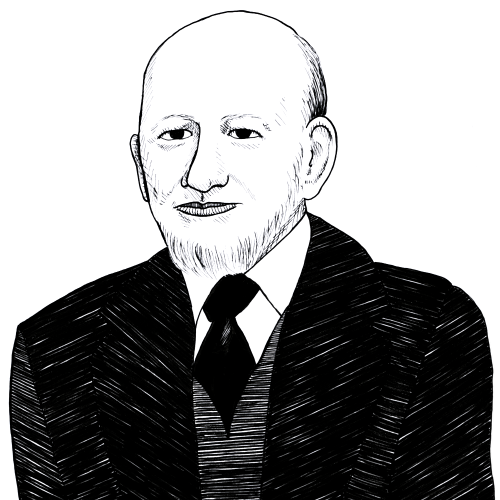Liberty Matters
Tulloh on Expectations and Institutions
 I found Bill Tulloh's most recent two posts very interesting, informative, and provocative of where future work on Lachmann might go.
I found Bill Tulloh's most recent two posts very interesting, informative, and provocative of where future work on Lachmann might go.The application of Lachmann's work on institutions in computer science is, as I suspected, fascinating. The example that Bill provides is very helpful, evocative of Lachmann's own reference to the post office as an institution and the mailman as a "real type." The example of Claire using a third party, abstracted by degree, to mail her birthday card to her mother is very helpful. In general, I feel that this type of discussion could benefit from many more examples to focus the mind. I begin also to see the relationship between abstraction and modularization that Bill and I have talked about. I urge Austrian scholars to pursue more of this. Lachmann would be delighted.
On the relation of Lachmann's work on expectations to his work on methodology and institutions, Bill sees the timeline this way: Hayek's "Economics and Knowledge" provoked Lachmann's work connecting Weber and Mises; in other words, Hayek's identification of the centrality of inconsistent plans made Lachmann aware of the importance of disparate expectations.
I would guess Bill, who reads German, is in a better position than I to have an opinion on this. So I am willing at least to suspend judgment. I confess I had always seen it the other way – that Lachmann came to the LSE already familiar with Weber and proceeded after the LSE to rekindle that spark and integrate it into what he had learnt. But Bill may well be correct that I need to change my mind about this.
It is certainly true that the 1930s at the LSE were years of frenetic research on business cycles, and that this included examining individual plans and decisions often within a capital-theoretic context. The whole Hayekian "stable" appears to have participated in this research, including representatives in Italy. Bill, Giampaolo Garzarelli, and I have written a short paper on an article published in Italian by Lachmann and one N. M. Neuman in 1934, an expatriate Polish scholar at the LSE, discussing the contributions of two Italian scholars on their variations of the Austrian business-cycle story. Hayek referred to this research in a couple of articles in 1934 and 1935. Our interpretation, from that joint article, is indeed that Lachmann at that stage had not yet formulated his theory of capital but was in the process of doing so. So there are certainly interesting history-of-thought questions to be answered.
I want to turn to the question of Lachmann's theory of institutions. I feel like this part of his work, most fully developed in his 1971 book, The Legacy of Max Weber, is unlikely to be the object of much further attention. I may be wrong about this, but it seems to me that those studying Austrian economics look mostly to Hayek on this and his extensive work on institutions. Hayek sees institutions as phenomena resulting from complex processes of cultural evolution. Though I am not aware that Lachmann is anywhere on the record about this, I have heard from at least two sources (Karl Mittermaier and a letter Lachmann wrote to Don Lavoie) that Lachmann was not enamored of Hayek's work from the 1940s onwards on methodology and institutions. This may or may not be true, but it is curious that he never (as far as I know) explicitly referred to this work of Hayek's either positively or negatively. Is it not surprising that neither of the essays that deal with institutions in Lachmann's book on Weber has a single reference to or even a mention of Hayek? By that time Hayek had already written The Constitution of Liberty and many other works dealing with the evolution of institutions. One might even imagine, given the very few times he uses the word, that Lachmann was at pains to avoid using the concept evolution, though it is clearly implicit in his account.
As I interpret him, Lachmann agrees broadly with Menger's distinction between designed and undesigned institutions (and connects this to aspects of Weber's work), but suggests very strongly that no designed institution is ever devoid of undesigned elements in a changing world. And though he spends a lot of time discussing the origins of institutions and even identifies a type of "institutional entrepreneur" (my term not his) as a necessary ingredient (though this is not clear), there seems to be a lot of spontaneous development going on. Why not a single reference to Hayek?
Copyright and Fair Use Statement
“Liberty Matters” is the copyright of Liberty Fund, Inc. This material is put on line to further the educational goals of Liberty Fund, Inc. These essays and responses may be quoted and otherwise used under “fair use” provisions for educational and academic purposes. To reprint these essays in course booklets requires the prior permission of Liberty Fund, Inc. Please contact oll@libertyfund.org if you have any questions.